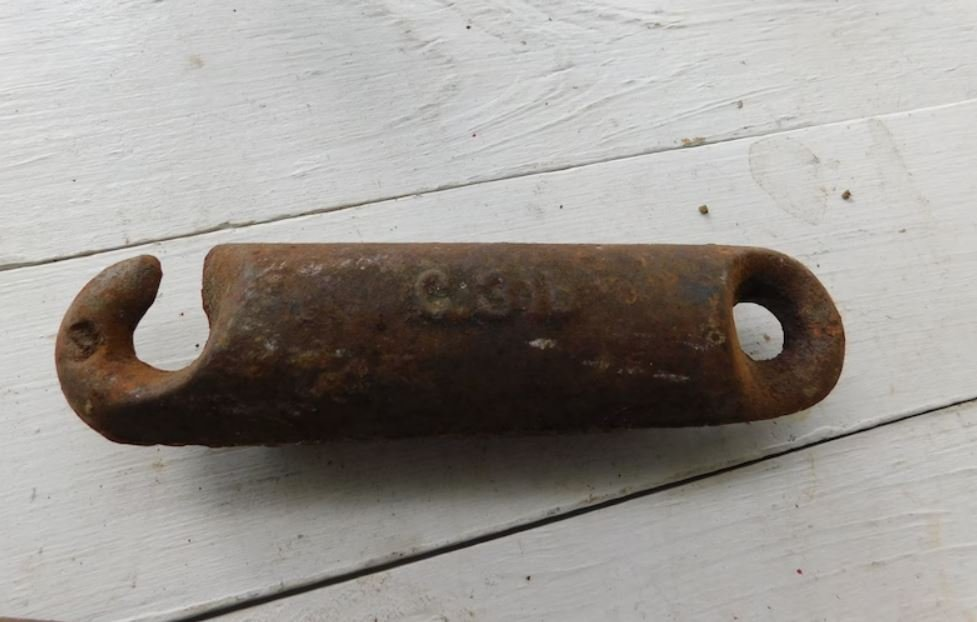Nestled within the sash windows of historic buildings, vintage window weights have long been the silent protectors of architectural charm and functionality. These unassuming yet captivating pieces hold a significant place in our architectural heritage, embodying the craftsmanship and intricate attention to detail that defined the architectural marvels of past centuries. Let’s explore the history, design, and importance of vintage window weights, and discover why they continue to captivate architects and preservationists alike.
The Origins of Window Weights: From Rope and Pulley to Cast Iron Craftsmanship

Dating back to the 17th century, window weights were initially part of rudimentary rope and pulley systems used to counterbalance sash windows. These early systems were essential for creating functional windows that could be easily lifted and held in place. Over time, as architectural styles evolved, so did these window weights. By the 19th and early 20th centuries, they had transformed into sophisticated cast iron designs that combined utility with artistry.
Each iteration showcased the ingenuity and skill of the craftsmen who fashioned them. Early weights were simple and utilitarian, but as cast iron became more widely available, artisans began to produce window weights adorned with intricate patterns and decorative markings. These embellishments weren’t just aesthetic flourishes; they were often symbols of pride for the manufacturers and a testament to the era’s commitment to quality and durability.
Understanding the Functionality of Vintage Window Weights
At their core, vintage window weights served a very practical purpose: to counterbalance the weight of the sash, allowing for smooth and effortless operation of windows. Traditional sash windows, especially those made of wood and glass, could be quite heavy. Without these weights, lifting and securing the windows would be nearly impossible.
These weights typically sat hidden within the window frame, connected by a system of ropes and pulleys. When the window was lifted, the weights descended, balancing out the force of gravity and holding the sash in place. This straightforward yet effective mechanism meant that people could easily open and close large windows without exerting much effort. The durability of cast iron meant that these weights could function for decades, and many still operate today in well-preserved historic buildings.
Vintage Window Weights as Artifacts of Architectural Heritage
More than mere functional components, vintage window weights are physical representations of the rich history woven into our historic structures. Each weight, with its unique markings, is a relic of the past—a small yet meaningful part of a building’s story. Some weights feature manufacturer insignias or decorative elements that reflect the time period in which they were crafted. These designs offer insight into the craftsmanship of bygone eras, revealing a dedication to detail and artistry rarely seen in modern building materials.
Preserving these original elements in historic buildings is about more than just honoring the past; it’s about maintaining authenticity. Many preservationists strive to retain these original components rather than replacing them with modern counterparts, which may lack the same durability and historical value. By preserving these weights, we keep a tangible connection to the architectural practices of past centuries and ensure that the beauty of traditional craftsmanship is preserved for future generations.
The Role of Window Weights in Architectural Restoration
In the field of architectural restoration, authenticity is paramount. Historic preservationists work to maintain the structural and aesthetic integrity of buildings, ensuring that the restoration process stays true to the original construction. Vintage window weights are an essential part of this effort, as they contribute to both the functionality and historical accuracy of sash windows.
Restoration experts often go to great lengths to either retain original weights or replicate them when necessary. If the original weights are missing or damaged, craftsmen may recast weights using similar materials and techniques to maintain continuity with the building’s architectural heritage. This attention to detail honors the original craftsmanship and ensures that the building’s character remains intact.
Celebrating the Enduring Beauty of Vintage Window Weights

While they may often go unnoticed, vintage window weights play a significant role in the preservation of historical buildings. Their influence extends beyond functionality; they bring a sense of authenticity, charm, and timelessness to these structures. Many of these weights, hidden behind layers of paint or encased in wooden frames, continue to perform their duties quietly, ensuring that the traditional sash windows operate smoothly and contribute to the building’s structural integrity.
Appreciating vintage window weights goes beyond acknowledging their role in a building’s mechanics. It’s about recognizing the skill and artistry that went into their creation, the longevity of their design, and the way they enrich our experience of historic spaces. Each weight is a testament to a different era, crafted by hands that took pride in their work, and standing as a lasting reminder of the architectural excellence of the past.
Conclusion: Honoring the Legacy of Vintage Window Weights
Vintage window weights, with their rich heritage and captivating designs, are silent yet profound contributors to our architectural history. As we admire these pieces, we’re reminded of the extraordinary craftsmanship that once went into even the smallest details of a building. By preserving these elements, we honor the artisans who created them and the enduring beauty they bring to our historic structures.
As guardians of our architectural heritage, these window weights ensure that the elegance and functionality of traditional sash windows continue to inspire us. They remind us that the past is never far away, holding timeless lessons about the value of craftsmanship, the beauty of simplicity, and the importance of preserving our history. In a world that often favors the new over the old, vintage window weights stand as enduring symbols of a time when buildings were crafted to last—and to leave a legacy.